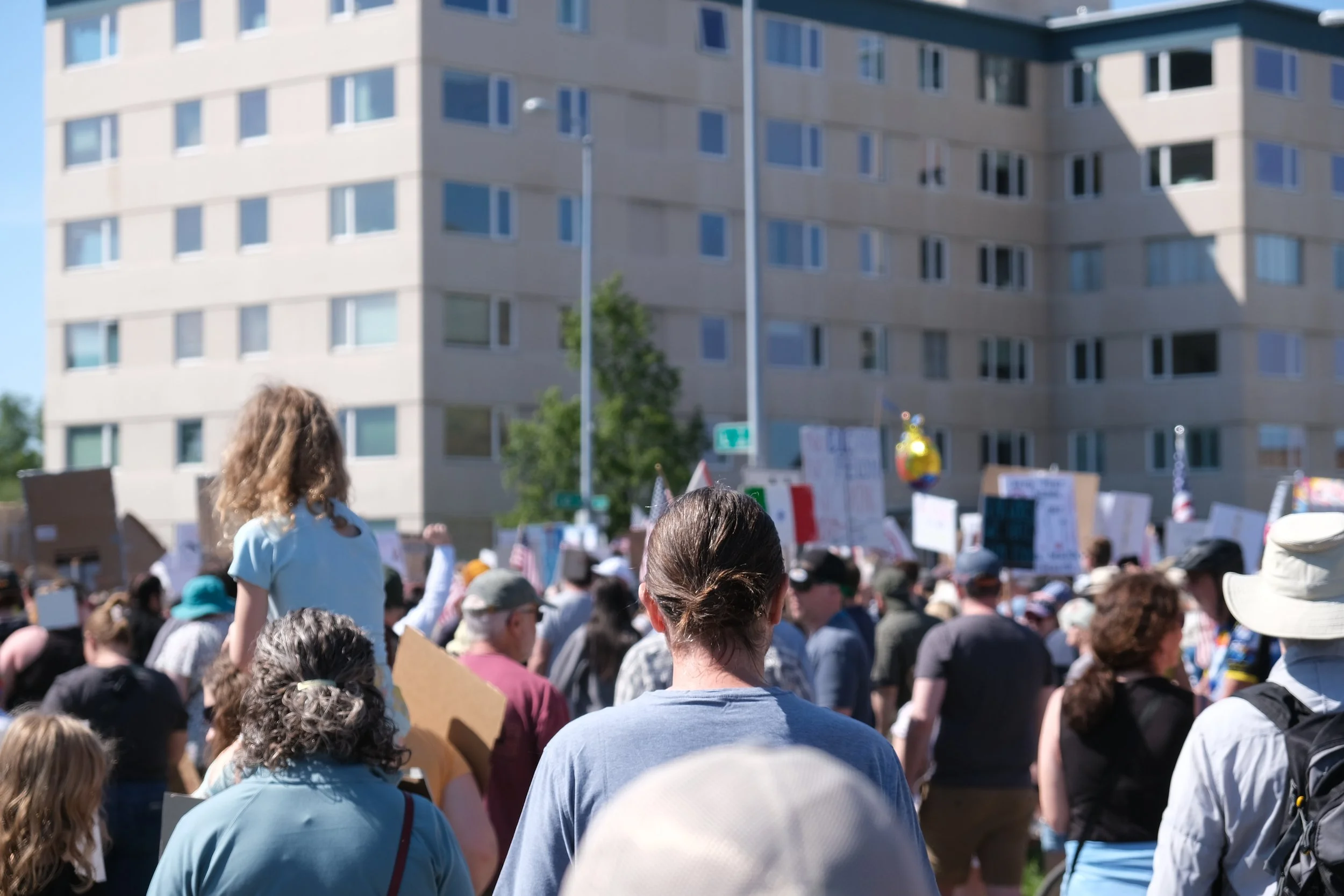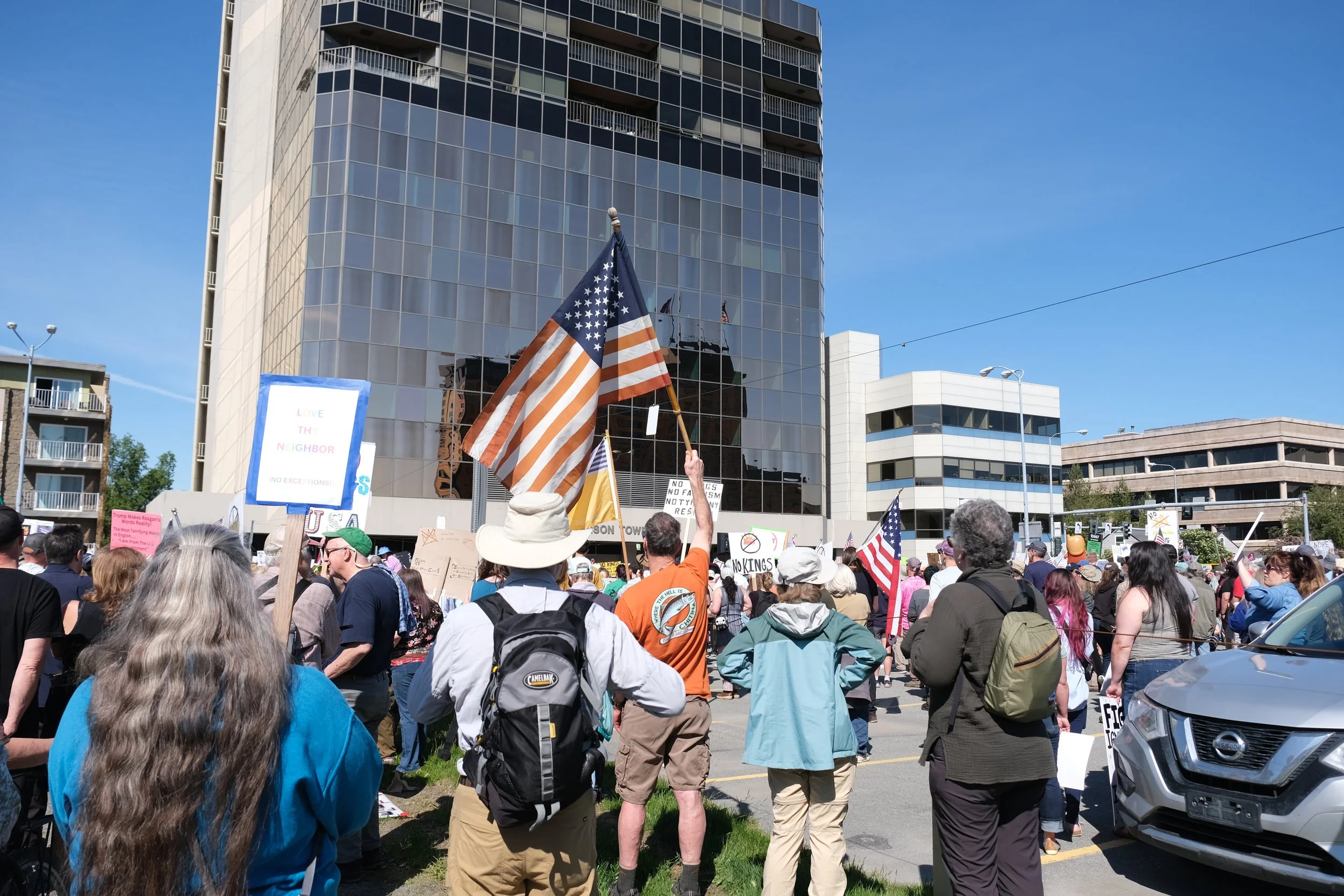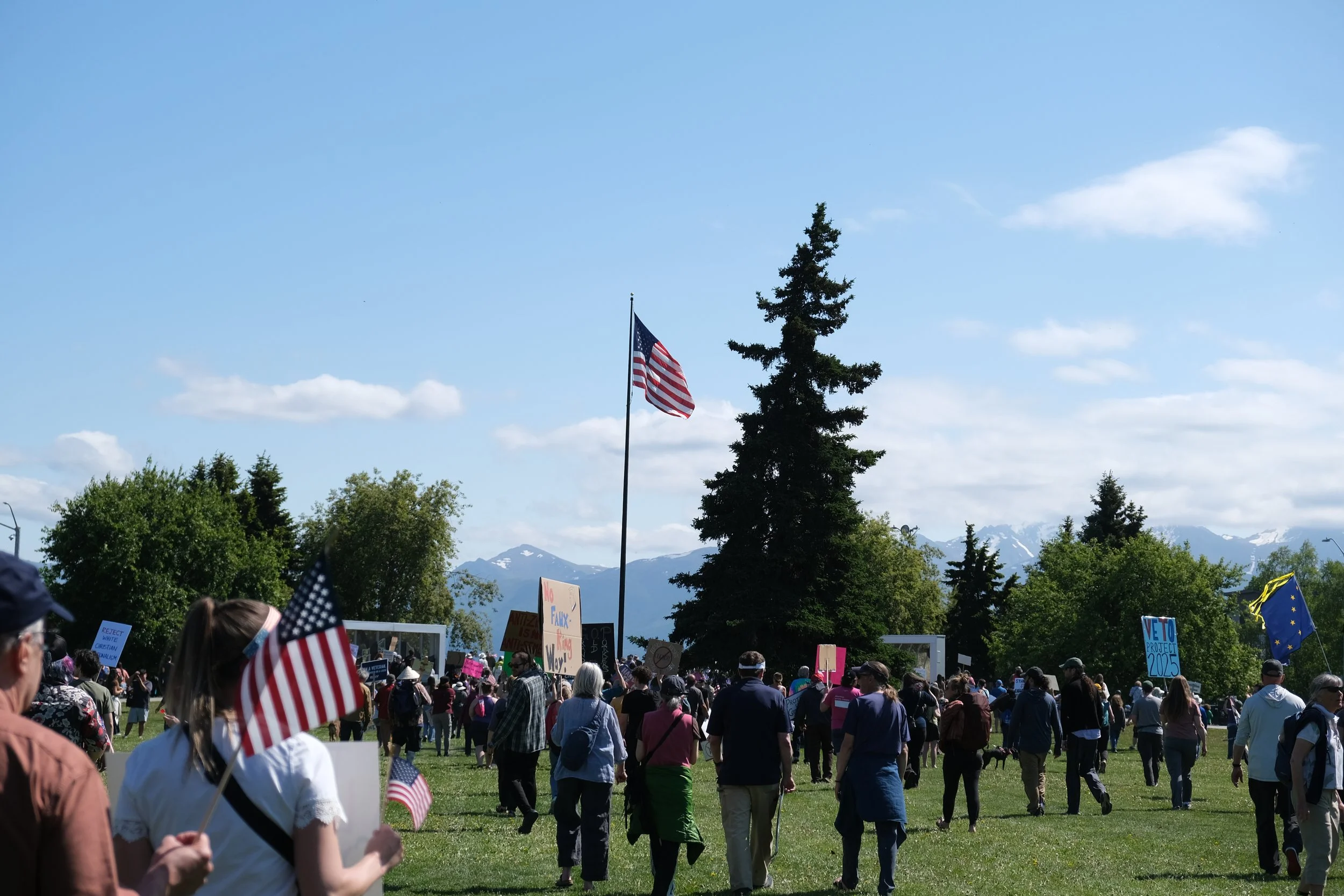Where We Are, Where We Go
1. Truth Demands Freedom of Speech
American civic religion is a strange thing; we take our own founding documents and the myths they construct perhaps more seriously than any other country (though the French might disagree). Perhaps this is inescapable in a revolutionary state—if you had to justify unsanctioned violence against the established government in order to found your country, the justifications given tend to assume a sacrosanct quality, because to question them would be to open a chasm of guilt and instability that might threaten the entire national identity. This should commend us to a healthy skepticism of our own founding myths in a philosophical vacuum. But as I have learned from extensive personal experience, intellectual and moral self-doubt beyond a certain point devours itself with no benefit to show for all its questioning. There are some positive truths and moral principles, and there is value in standing for the right as we see the right, as long as we remember we cannot see all.
In that spirit (or excuse, if you’re cynical), I submit that Declaration of Independence’s arrogation of self-evidence to the existence of basic rights and freedoms is perhaps the most defensible act of rhetorical hubris committed to parchment. The claim that some moral rule is self-evidently true, even if unsubstantiated, is an appeal to the existence Truth itself. Whether or not God’s Truth which undergirds the universe extends to questions of taxation without representation, the existence of an ultimate moral standard—something all humans instinctively know exists—is itself the guarantee of at least one right: the right to the Truth. The obligation to believe and speak the truth, as it is, not as socially-determined, demands each soul believe and speak truly. In a world ruled by imperfect men, this carries as corollary the necessary right to speak freely, lest we set ourselves up in judgment as pretenders to divinity. Factual or not, all speech which is not free, all speech which is coerced, is a lie, and can have nothing to do with the Truth.
2. Truth Must Name Injustice
It is no accident that scripture is filled with prophets speaking truth to worldly powers and protesting injustices—because God’s love cannot abide injustice, and the beginning of any rectification is the light of truth. We must recognize what is wrong, and we must name it, before we can have any hope of attaining what should be. This is why so much of the active language describing how Christians should further the Kingdom amounts to verbs of communication—testifying, witnessing, confessing.
Many of the Christians who have been reluctant to speak to the injustices of the current administration hold political views motivated by their own allegiance to truth and abhorrence for injustice. They would argue that abortion is a grave injustice (I would agree, though we may differ on the question of how society should respond, what the root of the injustice is, and what the potential complications of social policy); they might also argue that ideas now in vogue about gender identity and sexuality have created subtler injustices, unintended, against children or against one’s own well-being (I would also generally agree, though again we may differ in some details and on how to respond socially). I don’t think these issues, in the context of the politics of the past ten years, justified putting Donald Trump in power; many obviously disagree. We’re not going to resolve that difference now.
What we should all be able to do is name the violence done to suspected illegal immigrants, peaceful protesters, and political opponents for the inexcusable injustice that it is. I know those to my right may ask why I emphasize this and minimize what they consider more important: obviously, we have different understandings of the salience of the issues. Or perhaps they are right, and I am simply mistaken or, worse, biased out of a preference for some sins over others, or due to social pressure. If that is the case, then it is a moral problem—for me. It does not remove the responsibility from you to object to injustice, even if you think I am hypocritical or blind. In fact, if you voted for this administration or for the members of Congress who have enabled everything about it by their consistent abdication of responsibility, then you are more obligated to speak to these injustices than to any other—especially since these are wholly unnecessary harms actively committed by the state.
3. The President is Injuring Innocents
I will never be able to compile every incident and story that indicts this administration’s conduct as well beyond the pale of basic, nonpartisan right and wrong. I adjure you to read the newspaper and listen to the victims. I will simply remind you of a few things I have already noted.
The President began by abruptly cutting off aid that cost a pittance to maintain, failed to save money by doing so, and in the process left millions of our neighbors around the world to starve and sicken and die. https://www.nytimes.com/interactive/2025/03/15/opinion/foreign-aid-cuts-impact.html https://www.theatlantic.com/politics/archive/2025/02/usaid-dismantle-trump-damage/681644/ https://www.theatlantic.com/health/archive/2025/04/usaid-doge-children-starvation/682484/ https://www.theatlantic.com/ideas/archive/2025/03/diseases-doge-trump/681964/ https://www.nytimes.com/2025/03/02/health/usaid-cuts-deaths-infections.html https://www.theatlantic.com/health/archive/2025/02/usaid-doge-dismantle-cost-foreign-aid/681573/ https://www.impactcounter.com/dashboard?view=table&sort=interval_minutes&order=asc https://www.nytimes.com/2025/02/10/opinion/pro-life-foreign-aid-pepfar.html https://www.propublica.org/article/trump-usaid-malawi-state-department-crime-sexual-violence-trafficking
The President used ICE to seize people, in some cases illegally or even taking the wrong person by mistake, and send them without a lawyer or a phone call to a foreign prison where they were tortured, and, when ordered to return people mistakenly sent there, the President said that he would not do so—ever. https://www.andrewroosbell.com/blog/you-are-hurting-people
The President continues to use ICE not simply to detain and deport illegal immigrants according to the normal process of law, but to terrorize harmless contributors to society, punish children for things they were not responsible for, betray our veterans, abuse and neglect prisoners, and to do all this to anyone who fits a profile—a discriminatory, racist profile—including legal immigrants and American citizens. https://www.andrewroosbell.com/blog/the-tip-of-the-iceberg
4. The President is Trying to Silence the Truth
The President has made it abundantly clear, both in numerous statements made by himself and members of his administration, that his goal is to punish people and institutions for criticizing him. This is not mere hot air from a blowhard: from the beginning of this year the administration has persistently experimented with new ways to impose a high cost on speech against the President and his policy agenda. This includes singling out foreign students, here legally on student visas, arresting, and trying to deport them because of their political activism, or even for writing an op-ed. It has extended to suborning federal funding as a cudgel to pressure universities into policing their students’ and faculty’s speech on behalf of the administration, using regulatory oversight of mergers to pressure large media corporations into taking a more accommodating tack in their coverage, or even firing an (unaccountably) popular late-night host. Increasingly it takes the form of legal persecution from the Department of Justice, which has taken to firing everyone from federal prosecutors to FBI agents if they will not help the President prosecute his political enemies on ginned-up charges, not out of any scruple for justice, but to intimidate others into silence, or simply as a matter of petty resentment.
5. The Forum for Truth is Protest
Meanwhile, for people who do not possess a large enough platform to have their job targeted, or who do not occupy a position of prominence that might invite prioritization for a specious prosecution, the best way to speak is as the people, in large, peaceful protests. Ordinary individuals may not command much attention on their own, but a large group of people motivated enough to take time out of their busy day to protest something in a coordinated fashion signals a breadth of opposition that is harder to hide. Naturally, protests tend to spring up around ICE facilities and operations, as people are rightly outraged by thugs kidnapping people off the streets with excessive force and a substantial degree of malice and racial animus. And ICE increasingly has chosen to attack protesters physically, shooting them in the head with rubber bullets, gas, driving into crowds, beating people, pointing guns at people who are simply filming them, and detaining people as a punishment, whose only crime was holding a sign and speaking out. ICE is increasingly an organization recruited from the ranks of people with a grudge against immigrants and liberals and who seem prone to aggression and woefully under-trained for law enforcement. When these people are placed in an us-versus-them scenario with citizen protesters who are angry at the outrageous acts they are committing, spontaneous eruptions of violence are not surprising—and that is not a justification in any way for federal agents to commit violence, especially in situations of their own making. But there is also a calculated side to the intimidation: the administration clearly wants to frame all protesters as violent rebels and to provoke violence in order to justify a repressive military crackdown.
Over the course of the past couple of weeks, I have seen senior administration officials and allies roll out the accusation that the participants in the No Kings series of protests specifically are domestic terrorists. This would be a laughable statement, if it did not carry with it a threat that is not in the least bit funny. There have already been numerous No Kings protests across the country during the course of the administration. They were by and large peaceful and well-organized. I attended a couple here in Anchorage, pictured below, and they had a character of a festival.
There were as many middle-class suburban grandmothers as there were college students, as many families with young children in tow waving flags as keffiyeh-draped activists. Police looked on placidly and passing cars honked in support. But the President calls all of those who participated – the grandmothers, the schoolteachers, the children, and yours truly—domestic terrorists. There’s a simple reason for this. The President is more unpopular than ever, the population more upset by footage of ICE raids and violence against protesters, and there is another No Kings protest scheduled for this Saturday, October 18, all over the country. This matters, because this protest has been the kind that large numbers of ordinary engaged voters with jobs and families show up to. The President is using the term domestic terrorist specifically to create a flimsy justification to send men with guns to break up these coming peaceful protests, and to explain in advance any violence these men do. There are two goals: to create violent clashes which can be used to excuse ruling by force, and to make ordinary people think twice about showing up to protest, for fear they might get hurt or get in trouble.
6. Where We Go
This is why I need you to show up on Saturday—because the President has already issued this threat in an attempt to scare people out of speaking publicly against him. In such a moment, staying home out of a desire to stay out of trouble (an impulse I well understand—I am not really a protest person, as I said to a friend as I traipsed along awkwardly after a bunch of marchers I did not particularly like or trust) is a form of surrender. I understand not everyone can show up. But to stay away because of a concern that things might go south is, in this context, a forfeiture of the right to free speech, and a betrayal of that right for others. The President is counting on people staying home so the crowds will be smaller, easier to suppress, and more radical. He is also counting on those who do show up to engage in violence. In this scenario, there is but one narrow way through: we must neither stay home, nor engage in violence.
You can find the protest closest to you on this site: https://www.nokings.org/ As you can see from the map, there should be a protest within reach of you. The one in Anchorage is at 3:00 PM on Saturday in Town Square Park.
I want to say one more thing, specifically for those who do not feel they ideologically align with these protests, either because they tend to be dominated by radicals, or because you are a conservative Republican. I completely understand being put off by the opinions, attitudes, and aesthetics of many protesters, or being concerned that some will cause trouble. At the protests I’ve attended, I’ve seen a lot of signs I wouldn’t personally wave. The last one featured a speaker before the march who slid right into tankie anti-western-imperialism rhetoric, essentially blaming NATO and capitalism for Russian aggression in Ukraine. As someone who enjoys watching both my 401K grow and NATO fancam edits on youtube, and who thinks that sort of ideology amounts to supporting a genocide in eastern Ukraine, I could not disagree more, and I was extremely upset in that moment—needless to say, I did not clap. But then we marched, and the march was against the administration’s authoritarianism. And that’s the thing—at any large protest, the organizers will often be radicals who one may vehemently disagree with; but everyone should be able to come together, only responsible for what we individually say, to send a collective signal of opposition.
That brings me to conservatives and those who might even support much of the administration’s policy. I’m not going to try to debate federal policy or ideology with you, I assume that you, like me, have considered your views at great length and have strong and settled reasons for believing what you believe. But if you are an American and you care about liberty, then presumably you care about freedom of speech. This administration is currently attempting to suppress and intimidate until that right is reduced to words on parchment in the National Archives, with no actual force in American life. Even if you agree with the President on other issues, you should want to let him know that suppressing criticism is a bridge too far even for his supporters. There’s room for you at the march. I’d love to see you there.







